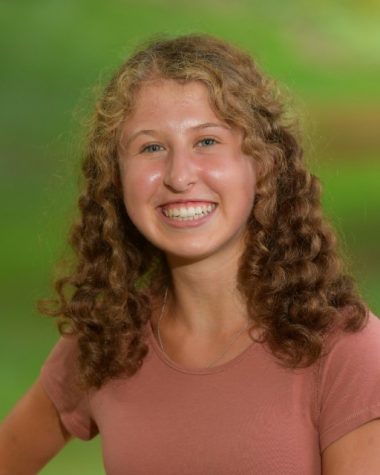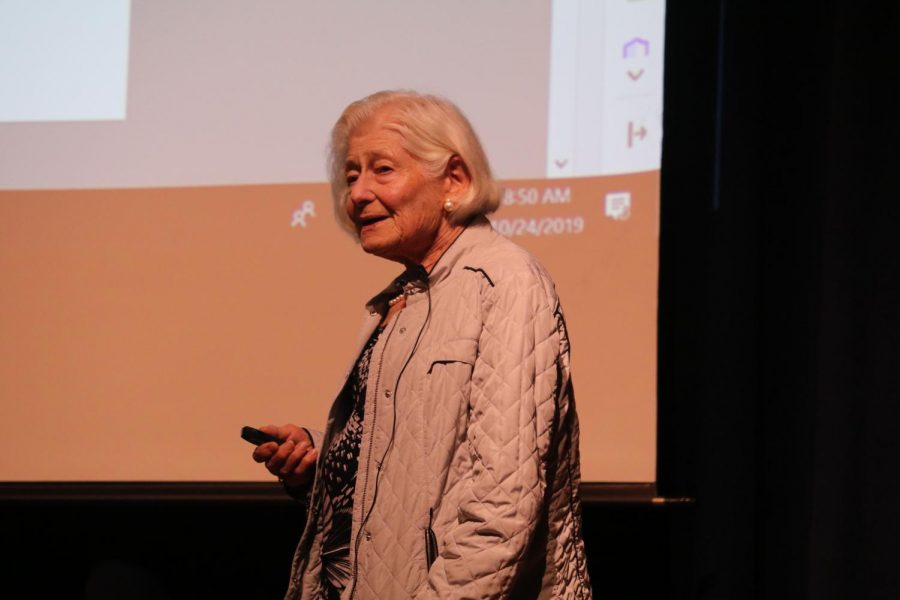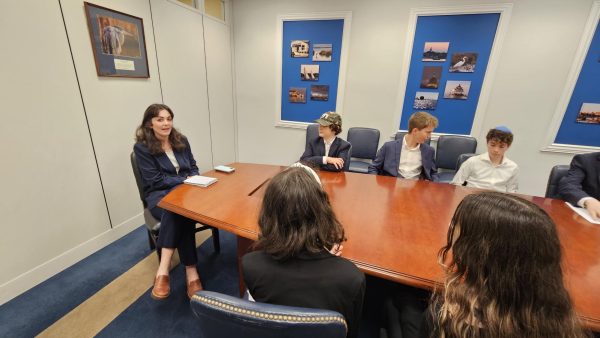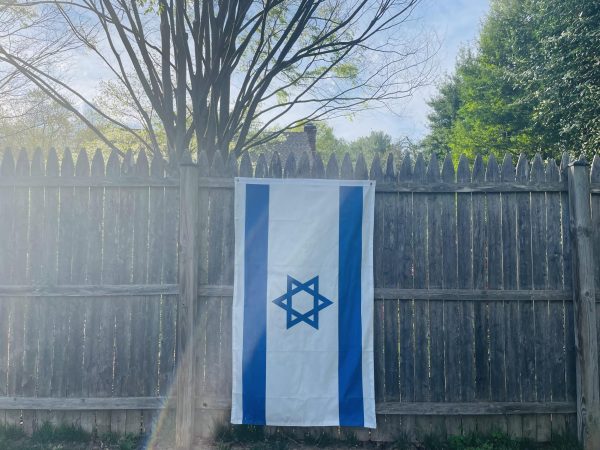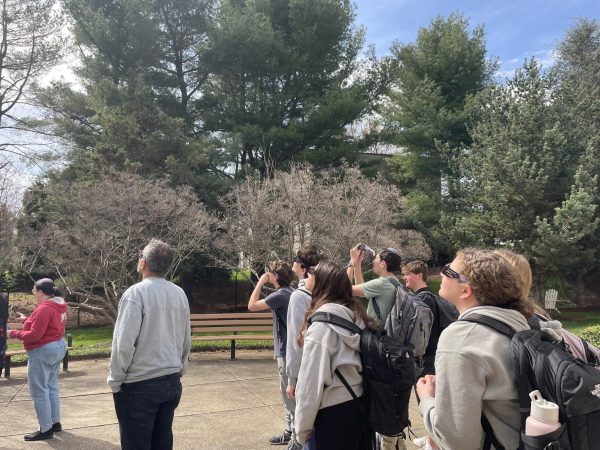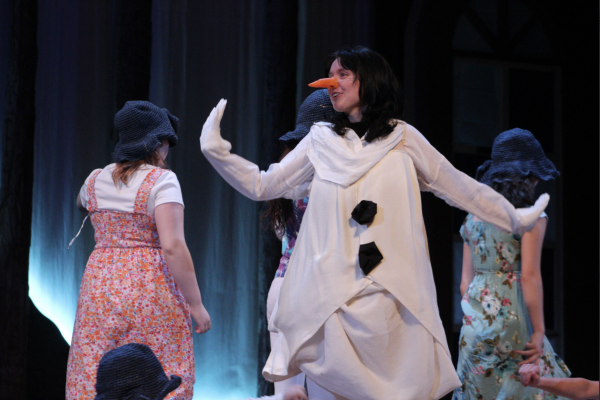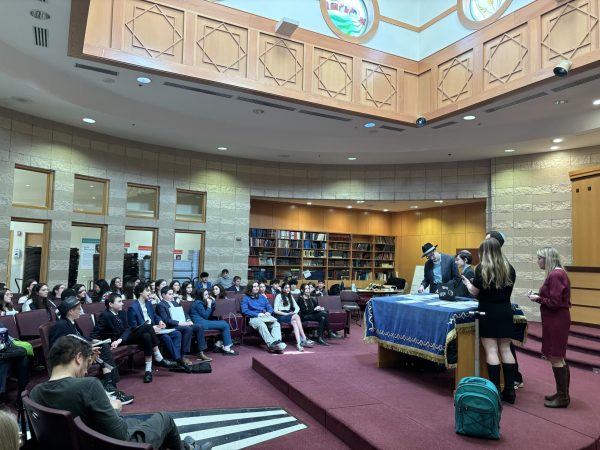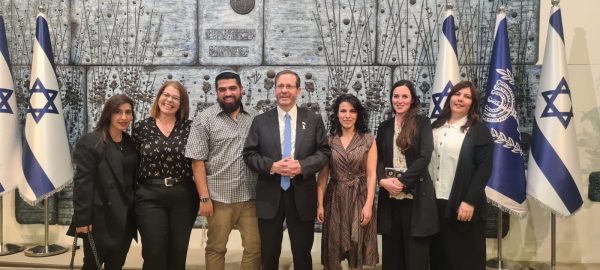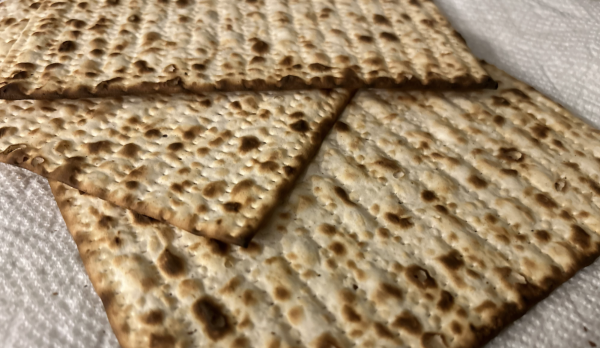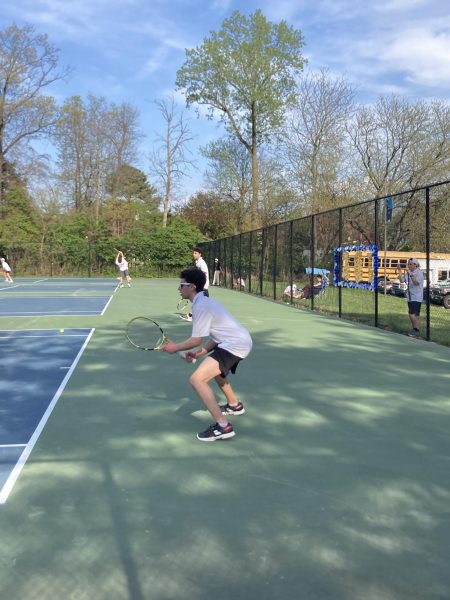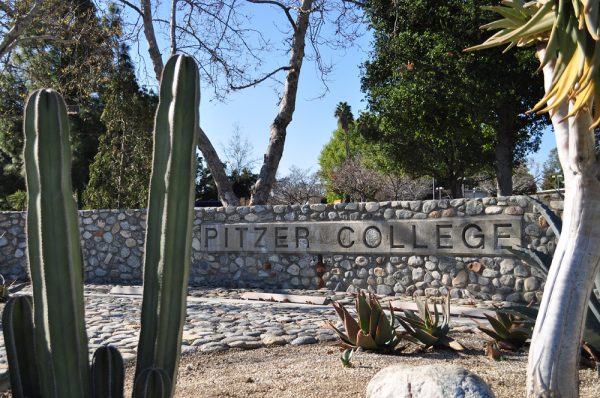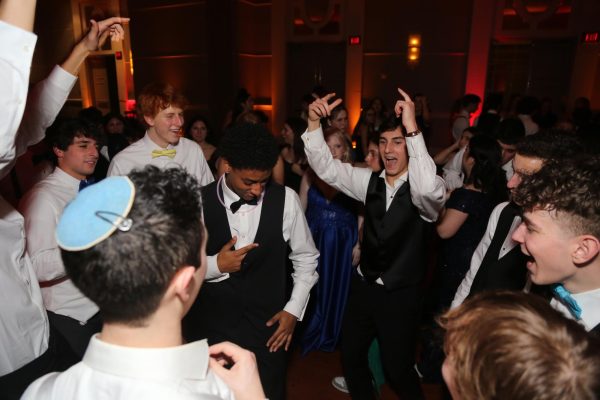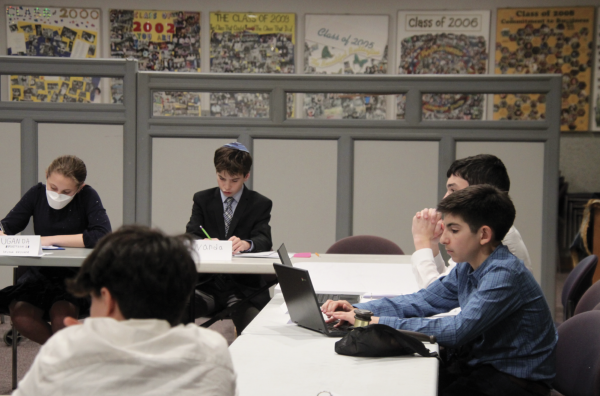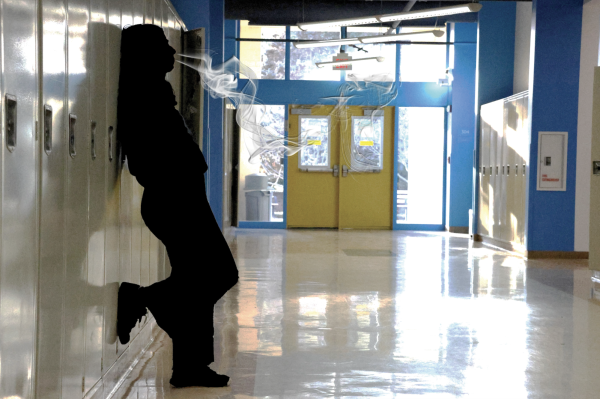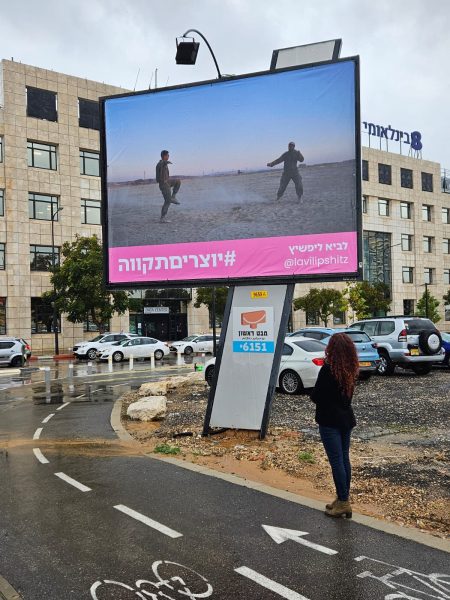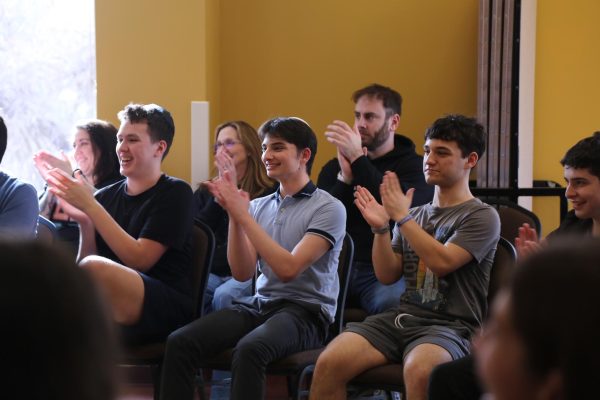Holocaust survivor Irene Hasenberg Butter speaks to both middle, high schools
photo by Tali Kuperburg, dimensions yearbook
Holocaust survivor and activist Irene Butter Haseberg speaks to the entire high school student body during an assembly on Thursday.
During her visit on October 24, Holocaust survivor and activist Irene Hasenberg Butter taught students the tragic events of the Holocaust and emphasized its relevance in today’s world.
“She is a person who has an incredible story to tell and an incredible message to share with students and with our community,” Associate Head of School and High School Principal Dr. Marc Lindner said.
Born in 1930 in Berlin, Butter spent her childhood fleeing Nazi persecution. She survived a transit camp and a concentration camp and managed to escape due to her status as an “exchange” Jew with an Ecuadorian passport. In 1945, she made it to the U.S. without her father, who died on her family’s train ride to freedom, and without her mother and brother, who were separated from her for months.
Although Butter spoke to both the middle school and high school, she slightly tailored her presentation to be age-appropriate. In addition to these assemblies, she spoke to individual high school Jewish History classes, middle school Humanities Experience classes and the parent community in the evening.
The Holocaust is taught in the eighth grade Humanities Experience curriculum as well as the 10th grade Jewish History curriculum. Teachers signed up for Butter to visit individual classes in order to give their students the chance to ask questions and to learn about the topic in a more intimate setting.
“It made the story of the Holocaust more personal,” sophomore Oren Swagel said.
It was the pain of separation – from her father who had died as well as from her mother and brother who were hospitalized in Switzerland while Butter was sent to a refugee camp in North Africa – that still haunts Butter today.
She explained that history does repeat itself and that even today in America, echoes of the Holocaust are seen. Butter brought up the treatment and dehumanization of refugees and immigrants, particularly at America’s southern border with Mexico.
“Seventy-five years later the same inhumanity is occurring now in our own country,” Butter said. “I’ve never forgotten the pain of being separated.”
Butter ended her presentation by sharing ways that each student can ensure that they are “never a bystander.” She encouraged students to sign petitions, engage in discussions, educate others and vote in the future.
“We need to continue as a school community and as Jewish community more broadly to tell the stories of what happened in the Holocaust, in the Shoah,” Lindner said. “We need to make sure that the occurrences are always remembered, are told truthfully and that as we say, we never forget what is that occurred because we want to prevent that from ever occurring again.”
